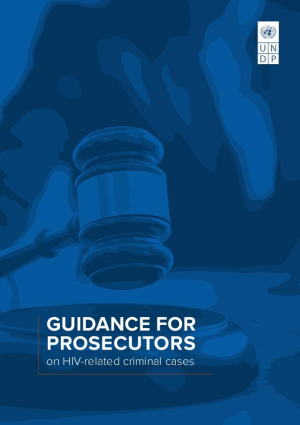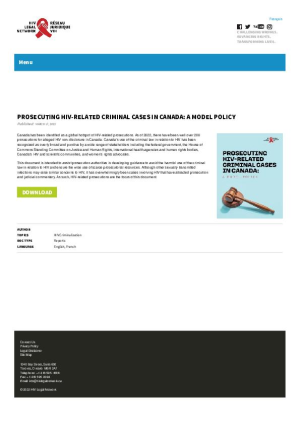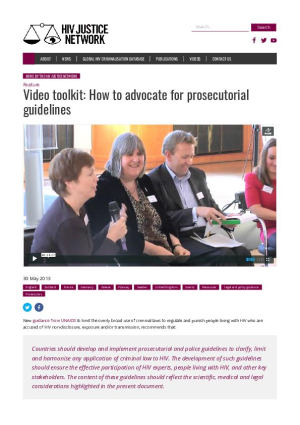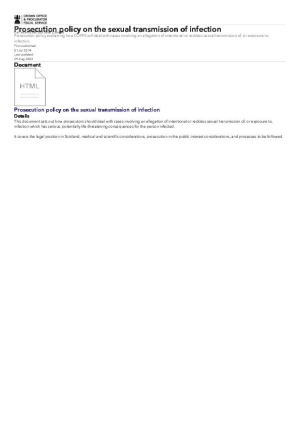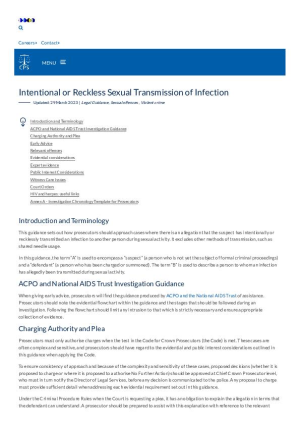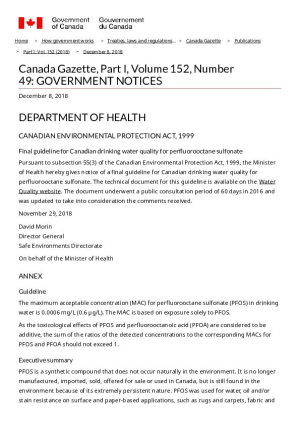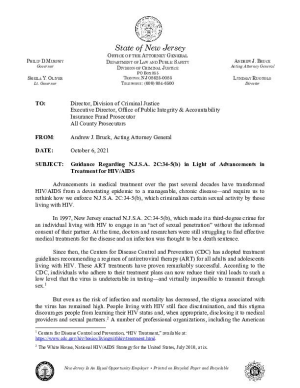This guidance document therefore presents 10 key principles that should assist prosecutors in handling a prosecution – or potential prosecution – involving an allegation of HIV non-disclosure, exposure or transmission. Each principle is accompanied by a more detailed commentary examining the specific application of the principle by prosecutors in the course of their handling of a potential or ongoing prosecution. Each principle and its accompanying commentary is grounded in a consideration of the best available scientific evidence, applicable international human rights standards, as well as the widely-agreed professional standards governing the function of prosecutors within the criminal justice system.
Legal education
Prosecutorial guidelines
Prosecuting HIV-Related Criminal Cases in Canada: A Model Policy
This document is intended to assist prosecution authorities in developing guidance to avoid the harmful use of the criminal law in relation to HIV and ensure the wise use of scarce prosecutorial resources. Although other sexually transmitted infections may raise similar concerns to HIV, it has overwhelmingly been cases involving HIV that have attracted prosecution and judicial commentary. As such, HIV-related prosecutions are the focus of this document.
How to advocate for prosecutorial guidelines
This video toolkit comprises a workshop held during a seminar on HIV criminalisation in Berlin in September 2012 to discuss challenges associated with the creation of prosecution guidelines, providing important insights from prosecutors and civil society alike. The workshop followed the European premiere of the documentary ‘Doing HIV Justice: Clarifying criminal law and policy through prosecutorial guidance’ which explores how prosecution guidelines were created for England and Wales
Consultation on Prosecutorial Guidelines for Ontario Cases Involving Non-disclosure of Sexually Transmitted Infections: Community Report and Recommendations to the Attorney General of Ontario
Aims to contribute to Ontario Ministry of the Attorney General (MAG)’s consideration of guidance to assist Crown counsel to make fair and timely decisions in cases based on allegations of nondisclosure of HIV or other sexually transmitted infections to a sexual partner. Reflects discussions, feedback and recommendations from community consultations. Recommends specific text with accompanying rationale.
Prosecution Policy on the Sexual Transmission of Infection: Intentional or Reckless Sexual Transmission of, or Exposure to, Infection
Sets out how prosecutors should deal with cases involving an allegation of intentional or reckless sexual transmission of, or exposure to, infection which has serious, potentially life threatening consequences for the person infected.
Doing HIV Justice: Clarifying criminal law and policy through prosecutorial guidance
Demystifies how civil society worked with the Crown Prosecution Service of England & Wales to create the world’s first policy and guidance for prosecuting the reckless or intentional transmission of sexual infection.
Intentional or Reckless Sexual Transmission of Infection: Legal Guidance, Sexual offences , Violent crime
This guidance sets out how prosecutors should approach cases where there is an allegation that the suspect has intentionally or recklessly transmitted an infection to another person during sexual activity. It excludes other methods of transmission, such as shared needle usage. Any allegation of intentional or reckless transmission of an STI will almost invariably be eligible for early advice in accordance with Chapter 7 and Annex 6 of the Director’s Guidance on Charging (sixth edition).
Director of Public Prosecutions Act – Directive
Directive to federal prosecutors regarding HIV non-disclosure cases issued by the Attorney General of Canada on December 8, 2018. Reflect the most recent scientific evidence around sexual transmission of HIV, as analysed by Canada Public Health Agency, as well as applicable criminal law as specified by Canada Supreme Court.
Guidance Regarding N.J.S.A. 2C:34-5(b) in Light of Advancements in Treatment for HIV/AIDS – State of New Jersey
Prosecutorial guidance for the State of New Jersey. The Guidance calls for prosecutors to consider whether a sexual act was forced or coerced, whether there was an intention to transmit, and whether the individual was adhering to an appropriate HIV treatment plan, before bringing charges.

